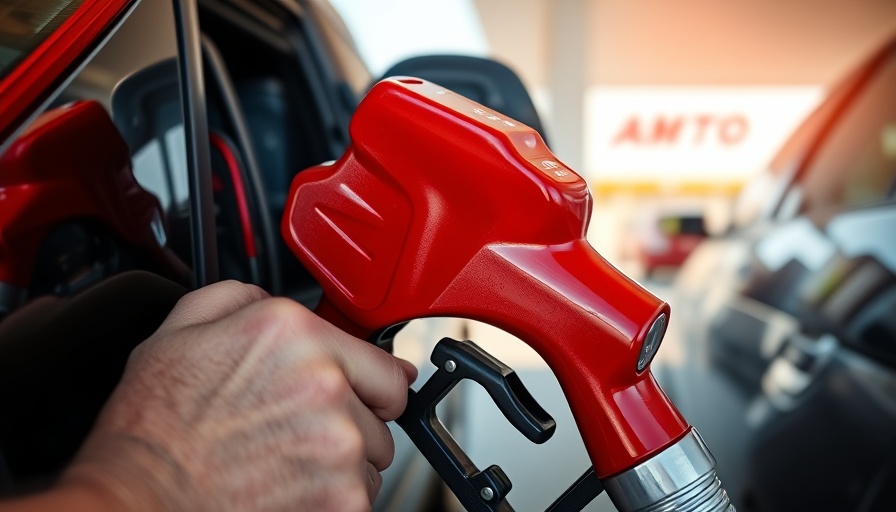
The Peculiar Law: Why New Jersey Insists on Full Service
Many visitors to New Jersey find themselves puzzled by a unique aspect of life in the Garden State: the law mandating that only attendants pump gasoline. This regulation dates back to 1949, when the Retail Gasoline Dispensing Safety Act was enacted, forbidding residents from self-service at gas stations. The law was established with a clear purpose—it aimed to mitigate safety risks associated with the dispensing of fuel, including fire hazards, injury risks, and compliance with crucial safety protocols.
New Jersey lawmakers felt it was essential for professionals to oversee gas dispensing to manage risks such as the threat of fire (due to vehicle engines being left running) and the danger posed by gasoline fumes. The law not only promotes safety but also ensures that gas stations maintain a high level of service. This is an expectation that has become part of the state's culture and identity.
Insights from the New Jersey Automotive Association
In discussions with Eric Blomgren, the executive director of the New Jersey Gasoline, C-Store, Automotive Association, the additional benefits of a regulated fuel dispensing environment were revealed. He stated that attendants are often trained to check for vehicle maintenance issues, a service that residents might neglect if they were pumping their own gas. This constant supervision can ultimately lead to a longer vehicle lifespan and potentially lower repair costs down the line.
Interestingly, the law may also reflect a positive economic model for New Jersey; the employment of gas attendants contributes to job growth in the state, partly offsetting the higher operational costs that may arise from higher gas prices.
A Comparison of Gas Prices: Understanding the Costs
The ongoing debate about gas prices in New Jersey often leads to the question: is gas more expensive because of this law? According to a report by AAA, New Jersey provides competitive gas prices compared to its northeastern neighbors, including New York and Connecticut. At the time of publication, the average price for regular gas in New Jersey was reported at approximately $3.037. While it may be higher than prices in states like Mississippi or Missouri, it remains lower than some of its immediate counterparts.
It’s important to note that the costs associated with maintaining gas attendants do factor into the final price at the pump. This means consumers are indirectly contributing to the employment of these attendants when they fill up their tanks.
Should You Tip Your Gas Attendant?
While tipping is not officially required when having gas pumped, it is often appreciated by attendants who go the extra mile, such as cleaning windshields or providing other services. This courtesy reflects the often overlooked human element in the gas station experience. A small tip can show your appreciation for the work they do. Eric Blomgren emphasized that, while it's not customary, tips could brighten an attendant's day and help support the staffing challenges gas stations frequently face.
Navigating Unfamiliarity: What New Jersey Drivers Should Know
So, what does it mean for you as a driver in New Jersey, especially if you're coming from a state where self-service is the norm? Embracing this unique practice can present a learning curve, but it ultimately ensures a safer and potentially more financially savvy approach to car care in the long run. Whether you're filling up for a long drive down the Jersey Shore or just commuting to work, the convenience and service-oriented nature of New Jersey gas stations play a significant role.
Understanding these nuances not only enriches your experience in the state but may also provide you with some unexpected advantages. A little knowledge goes a long way in making your time in New Jersey smoother.
The Cultural Identity of New Jersey's Gas Stations
This self-service prohibition has become a cherished aspect of New Jersey's local identity. Residents and visitors alike recognize that stopping for gas will involve an interaction with a friendly attendant, sharing a moment of human connection in our increasingly automated world. This aspect of the state's culture enhances the overall experience of driving throughout New Jersey, showcasing the kind of neighborly charm often associated with the region.
Looking Ahead: Could Change Be on the Horizon?
As the state grapples with evolving attitudes towards convenience, safety, and economic pressures, the question remains: Could New Jersey eventually allow self-service gas stations? While some advocate for the move citing consumer convenience and potential cost savings, the status quo remains firmly in place. It serves as a fascinating case study in balancing tradition and modernity amid the complexities of state regulations.
As a resident in California contemplating a potential move to New Jersey, embracing the local customs, such as gas station traditions, could contribute to a more enriching experience. Understanding the implications of such laws could lead to informed discussions around consumer safety and economic choices within a community.
Explore New Jersey with an open mind and a sense of adventure. Who knows what connections you'll foster—or what stories you'll share!
 Add Row
Add Row  Add
Add 




Write A Comment